The 5-year Grande Ecole Programme, with 14 majors, provides an outstanding opportunity to study experience La French Tech at the heart of Europe’s premier business district.
Direct admission into the Master Degree in Engineering ( Year 4 of the Grande Ecole Programme) is open for fresh graduates hoping to expand their scientific knowledge in order to create and master tomorrow’s technologies.
The ESILV Engineer’s degree is conferred by the Commission des Titres d’Ingénieur (CTI), which is the only independent body authorised by French law to recognize and evaluate engineering programmes delivered in France.
5-year programme • 60 ECTS per year • September intake • Application deadline: June • 2026-2027 tuition fee: 11400€ per academic year
ESILV is the only engineering school in France to include a true transversal approach throughout its programme. Inter-school cooperation is a pedagogical method that is possible with the support of two other schools located on the same campus: EMLV (Leonard de Vinci Business School) and IIM (Institute of Internet and Multimedia).
With the emphasis on acquiring solid knowledge and discovering the world of business, years 1 and 2 of the Grande Ecole Programme (known as cycle préparatoire in the French system) are dedicated to a generalist education, enabling students to acquire all the scientific foundations needed to enter the engineering cycle, which begins in year 3 . Teaching, projects, development of soft skills and working methods, continuous assessment, work placements… the variety of subjects builds a diverse and coherent foundation.
This first cycle offers a wide range of opportunities:
In Year 1
This first post-bac year lays the foundations for what will be developed over the 5 years of the course. As a transitional year, it includes the fundamentals as well as modules on personal development and sustainable development. In International Track, all courses are taught in English. A 2-month work placement concludes the year.
The first semester includes complementary modules in computer science, mathematics, and physics, alongside core studies in mathematics (algebra, functions, and numerical sequences), physics (electricity and mechanics), and computer science (architecture and C# programming). Soft skills development is integrated through a foreign language, and sports.
The second semester deepens mathematical understanding with calculus, vector spaces, and probability, and continues with physics topics such as dynamics, thermodynamics, and electronics. In computer science, students explore systems, algorithms, and networks.
PIX are scientific and technical projects designed to help students progress over the years. PIX1 is based on the following pronciples:
.Work as part of a team
. Anticipate
. Communicate orally and in writing
. Reuse technical knowledge in a new situation
In Year 2
During the second year, students continue to strengthen their scientific and technical knowledge while gaining deeper insights into professional and collaborative practices The year ends with a three-month work placement, designed to familiarise students with the professional world.
Semester 3 focuses on advanced mathematics, including multivariable analysis and series, while engineering topics such as automatic systems, heat transfer, and material resistance are introduced. In computer science, students delve into object-oriented programming and algorithm complexity.
In Semester 4, students study Euclidean spaces, statistics, and advanced probability, alongside engineering subjects like fluid mechanics, electromagnetism, and experimental techniques. Computer science modules explore data modelling and graph algorithms.
PIX are scientific and technical projects designed to help students progress over the years. PIX2 is based on the following pronciples:
. Apply multidisciplinary knowledge
. Manage a budget
. Manage a long project
. Assess the state of the art
. Propose and validate a technical solution
In Year 3
The third year is a pivotal generalist year, corresponding to the end of the cycle préparatoire and the start of the engineering cycle. Students have the option of combining part of their curriculum with courses that correspond to their career plans.
Acquiring professional skills:
Project management, statistics, numerical analysis, object-oriented programming, corporate financial management
Individual involvement, project-based teaching, active teaching in small groups
Choice of scientific modules (electives) to individualise your career path
20% of the programme is made up of cross-disciplinary courses: soft skills, international exposure, compulsory sport, etc.
Series of lectures and seminars
. The career of an engineer
. Gender diversity and professional equality
. Building your professional network
. Engineering ethics
Major Selection Day
. Presentation of the issues, skills, business sectors and professions for each major
. Q&A workshops
. Testimonials from alumni and final-year students
Elective courses
Elective courses enable students to tailor their course to suit their career plans. Each student has the opportunity to discover
or to delve deeper into certain subjects, broadening the scope of their knowledge and skills. In this way, they can try out a course of study so that they can choose their 4th year major with full knowledge of the facts. It’s also an opportunity to meet the teaching staff of the major.
There are two types of format: full-time (initiale) or work-study (alternance). Work-study programmes are only available for students who have completed Year 3 of the Undergraduate cycle at ESILV, or those who hold a French undergraduate degree.
ESILV continuously adapts its programmes to ever-changing economic trends to ensure that students are taught the latest, most up-to-date skills and knowledge. Major courses consider company and job market needs and are all entryways into the student’s desired professional occupation.
ESILV careers service aims to help students realise their potential by offering dedicated careers coaching to define and achieve their career goals. As a student of ESILV, you’ll attend careers seminars and events throughout your studies, such as the iPitch&Meet event.
Each year, the ESILV careers service proposes 400 exclusive on-campus events to introduce students to companies and to our network of 10,000 alumni:
ESILV is proud of its student community engagement and its three career-oriented student clubs:
Students who have completed or are in course of obtaining a degree within the French education system are considered national candidates, and must apply through one of the French admission procedures. Apply as a French candidate.
Students who have completed or are in course of obtaining a degree out of France are considered international candidates, and must apply through the International admissions portal.
ESILV welcomes self-motivated students looking to tackle new challenges. Students with a background in engineering and the physical sciences are encouraged to apply.
Applicants must meet the following minimum requirements:
Admission to ESILV programmes is selective. Selection is based on academic excellence, study projects, personal achievements, international awareness and the willingness to contribute to ESILV’s learning environment. Candidates will be evaluated first on their application documents and secondly on their performance during the online interview.
All applications to programmes at ESILV must be made on our online application portal. Your application will be evaluated by the admissions team and by the course director. You will be notified by email of the final decision.
Important Note: Please use only ONE email address to submit your Online Application and to communicate with the Admissions team.
Your application may be done in several stages. The information entered each time will not be lost.
International Admission Team
Devinci Higher Education
WhatsApp +33 (0)7 86 16 74 66
international.admission@devinci.fr
 Cécile Frankart Directrice Adjointe Doctorat en biologie cellulaire de l’Université de Reims-Champagne-Ardenne
Cécile Frankart Directrice Adjointe Doctorat en biologie cellulaire de l’Université de Reims-Champagne-Ardenne  Nicolas Travers Directeur adjoint de la recherche Doctorat, Informatique, Université Paris Sorbonne…
Nicolas Travers Directeur adjoint de la recherche Doctorat, Informatique, Université Paris Sorbonne…  Gaël Chareyron Responsable Département Doctorat, traitement d’images et informatique, Université de Saint-Etienne…
Gaël Chareyron Responsable Département Doctorat, traitement d’images et informatique, Université de Saint-Etienne…  Cyril Grunspan Responsable Département Doctorat, Mathématiques, Ecole Polytechnique de Paris_Télécom Paris Finance
Cyril Grunspan Responsable Département Doctorat, Mathématiques, Ecole Polytechnique de Paris_Télécom Paris Finance 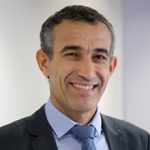 Ali Jaghdam Chargé d'Enseignement Doctorat, Sciences économiques, Université Paris Dauphine Mathematiques
Ali Jaghdam Chargé d'Enseignement Doctorat, Sciences économiques, Université Paris Dauphine Mathematiques  Bérengère Branchet Enseignant Chercheur Doctorat, Mathématiques appliquées, Université de Bordeaux Responsable Projets…
Bérengère Branchet Enseignant Chercheur Doctorat, Mathématiques appliquées, Université de Bordeaux Responsable Projets… 2026-2027 FEES: €11400 per academic year
APPLICATION DEADLINE: June
Fees include :
EMLV offers merit-based scholarships and guidance for government scholarships.
The Early Bird is a waiver of 20% of the tuition fee at EMLV for candidates who complete their application and pay their deposit fee before March 31st.
Convinced of the immense importance of improving international representation in engineering, business and multimedia, the De Vinci Higher Education Group has made available funds for talented students hoping to pursue their studies in ESILV and EMLV schools.
The Eiffel scholarship program is a tool developed by the Ministry for Europe and Foreign Affairs to allow French higher education institutions to attract the best foreign students in diploma courses at Masters’ and Doctorate/PhD level.
Campus France is a public institution in charge of promoting French higher education abroad and welcoming foreign students and researchers to France. It encourages international mobility and manages scholarship programmes and the alumni network. Campus France manages Campus Bourses (Campus Scholarships) provides information on the scholarships offered to foreign students.
Find full details of ESILV scholarships on the Fees and Funding page
The school does not own or manage its own accommodation. We have a partnership with a dedicated online housing search platform. Once you have paid the deposit, you will be granted access to that platform to begin your search.
You should budget around 750 and 900 euros for a studio. We strongly encourage students to begin their search as early as possible (even before applying for a visa).
If English is not your first language, you must demonstrate a B2 level. You should provide a test score (TOEIC, TOEFL, IELTS, PTE, Cambridge). If English is your first language or if you have graduated from a programme taught in English, you do not need to present an official test score. We will ask you to prove that you graduated from a programme fully taught in English (eg a letter from your school).
All applications must go through our online portal. Once you have uploaded all your documents online, you must pay the application fee to submit your application. Next, we will schedule an online interview to assess your profile and motivations.
The admissions team attends numerous international student fairs throughout the year. The list of fairs that we will be attending is on our web site, learn more here Please contact (international.admissions@devinci.fr) to arrange an appointment during our visit to your country.
Yes, you can apply and might be accepted if you score higher than 80% during the interview or if you provide a French certificate (DALF, DELF, TCF) of at least B1 level.
Accommodation: 750€ – 900€ per month Food: 150€ – 250€ per month Transport: 75€ per month
Please check the programme page for specific requirements.
If you are admitted, you must pay the deposit to secure your place on the programme. Then you will receive an official enrolment letter, which will allow you to start your Visa application.
Applications open in October and close in early July.
There is only one intake per year in September or October.
You will need your CV, your motivation letter, a copy of your grade transcripts and any degrees your already hold, your language test score (if applicable), a copy of your passport, and a photograph of yourself.
We offer various scholarship each year. Please consult our dedicated page for more information.
Please check the programme page for up to date pricing, which varies from one programme to another. More info on fees and funding.
After being accepted to study, you must make the deposit payment to secure your place. Your remaining fees will be invoiced after the start of your programme and can be paid in instalments.
The school does not operate a direct placement system but does offer a full support. We host on-campus careers fairs so that you can meet company recruitment representatives. You will also have seminars to help you with CV writing, interview preparation, etc. The school will also provide all the necessary documentation to validate your internship.
In France, by law, companies must pay interns who work for longer than 2 months.
Students must have spent one full year in France to be eligible to study in Alternance. So, you cannot study in Alternance during your first year in France.
You will have classes from Monday-Friday; you may occasionally have an exam on a Saturday. Your earliest class might begin at 8.30am and your latest class might finish at 8.30pm, but you will never have a full 12 hour day. You will have been 18-24 hours of class per week, depending on your programme. Your timetable changes from one week to the next and will be available online one week in advance.
All of our English-taught programmes have compulsory French classes included as part of the tuition fees. You will sit a French test when you arrive to find your level, so we can put you in an appropriate group.
French law authorises foreign students to an auxiliary work of 964 hours during the year, the equivalent of 60% of the legal working year. It can only be auxiliary income. When you work in France, whether or not you are a student, you are guaranteed a minimum wage by law. We recommend that you begin your programme before looking for a job – your school work is your priority and we cannot allow absences for your job.
Your Visa application should go through your local Campus France office. You can use your enrolment letter from the school to begin your Visa application.
We will refund your deposit upon presentation of the official refusal document.
Yes. International students who have graduated from an RNCP or CGE accredited ESILV programme are eligible for Job seeker/ new business creator residence permit ( former APS. This residence permit allows students to renew their student visa for 1 year to look for a job or create a company in France. Learn more here
Program educational objectives are broad statements that describe what graduates are expected to attain within a few years after graduation. Program educational objectives are based on the needs of the program’s constituencies.
an ability to identify, formulate, and solve complex engineering problems by applying principles of engineering, science, and mathematics
An ability to apply engineering design to produce solutions that meet specified needs with consideration of public health, safety, and welfare, as well as global, cultural, social, environmental, and economic factors
An ability to communicate effectively with a range of audiences
An ability to recognize ethical and professional responsibilities in engineering situations and make informed judgments, which must consider the impact of engineering solutions in global, economic, environmental, and societal contexts
An ability to function effectively on a team whose members together provide leadership, create a collaborative and inclusive environment, establish goals, plan tasks, and meet objectives
An ability to develop and conduct appropriate experimentation, analyze and interpret data, and use engineering judgment to draw conclusions
An ability to acquire and apply new knowledge as needed, using appropriate learning strategies.
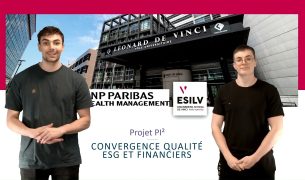 ESG & Corporate Quality Year 4 Industrial Innovation Project (PI²4) in the ESILV engineering Grande Ecole Programme, 2023-2024. Sustainable investment is at the heart of BNP Paribas Wealth Management's… Learn more
ESG & Corporate Quality Year 4 Industrial Innovation Project (PI²4) in the ESILV engineering Grande Ecole Programme, 2023-2024. Sustainable investment is at the heart of BNP Paribas Wealth Management's… Learn more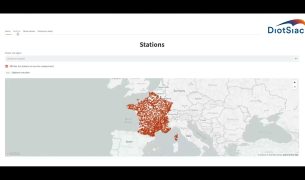 Web application for climate risk analysis and INSEE data (team 212) Year 4 Industrial Innovation Project (PI²4) in the ESILV engineering cycle, 2023-2024. Project description: The project involves developing a web application that will enable users… Learn more
Web application for climate risk analysis and INSEE data (team 212) Year 4 Industrial Innovation Project (PI²4) in the ESILV engineering cycle, 2023-2024. Project description: The project involves developing a web application that will enable users… Learn more Generative AI analysis of User Stories Year 4 Industrial Innovation Project (PI²4) in the ESILV engineering curriculum, 2023-2024. Using generative AI to analyse Users Stories, with the aim of speeding up… Learn more
Generative AI analysis of User Stories Year 4 Industrial Innovation Project (PI²4) in the ESILV engineering curriculum, 2023-2024. Using generative AI to analyse Users Stories, with the aim of speeding up… Learn more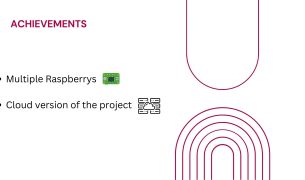 Creation of a platform to measure availability based on micro PCs Year 4 Industrial Innovation Project (PI²4) in the ESILV engineering curriculum, 2023-2024. Development of an availability measurement platform based on micro PCs (or Raspberry pi)… Learn more
Creation of a platform to measure availability based on micro PCs Year 4 Industrial Innovation Project (PI²4) in the ESILV engineering curriculum, 2023-2024. Development of an availability measurement platform based on micro PCs (or Raspberry pi)… Learn more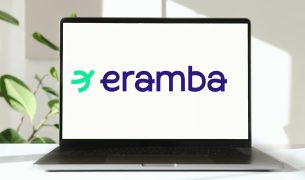 DIVA – GRC Year 4 Industrial Innovation Project (PI²4) in the ESILV engineering curriculum, 2023-2024. 1. Presentation of the project To define and make operational a tool to… Learn more
DIVA – GRC Year 4 Industrial Innovation Project (PI²4) in the ESILV engineering curriculum, 2023-2024. 1. Presentation of the project To define and make operational a tool to… Learn more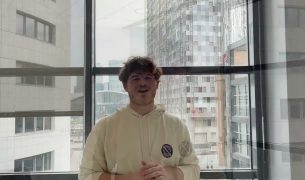 Automated autopsy report writing Year 4 Industrial Innovation Project (PI²4) in the ESILV engineering curriculum, 2023-2024. During an autopsy, forensic pathologists establish findings that they must transcribe in a… Learn more
Automated autopsy report writing Year 4 Industrial Innovation Project (PI²4) in the ESILV engineering curriculum, 2023-2024. During an autopsy, forensic pathologists establish findings that they must transcribe in a… Learn more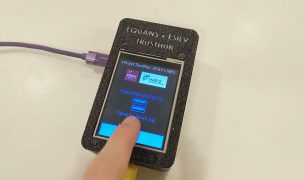 Embedded Station Blanche Year 4 Industrial Innovation Project (PI²4) in the ESILV engineering curriculum, 2023-2024. Station blanche : A workstation independent of the company network, with one or… Learn more
Embedded Station Blanche Year 4 Industrial Innovation Project (PI²4) in the ESILV engineering curriculum, 2023-2024. Station blanche : A workstation independent of the company network, with one or… Learn more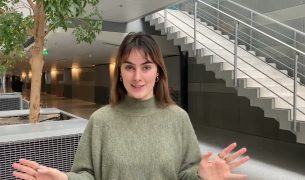 Action levers to optimize energy consumption Year 4 Industrial Innovation Project (PI²4) in the ESILV engineering curriculum, 2023-2024. The Curious Lab is the Hauts-de-Seine department's territorial innovation laboratory. Its unique feature… Learn more
Action levers to optimize energy consumption Year 4 Industrial Innovation Project (PI²4) in the ESILV engineering curriculum, 2023-2024. The Curious Lab is the Hauts-de-Seine department's territorial innovation laboratory. Its unique feature… Learn more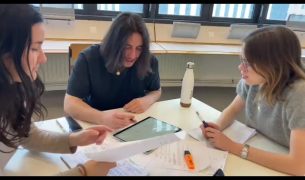 Idiba Foods (team 222) Year 4 Industrial Innovation Project (PI²4) in the ESILV engineering curriculum, 2023-2024. Idiba is a social enterprise that builds and manages climate-resilient farms to improve… Learn more
Idiba Foods (team 222) Year 4 Industrial Innovation Project (PI²4) in the ESILV engineering curriculum, 2023-2024. Idiba is a social enterprise that builds and manages climate-resilient farms to improve… Learn more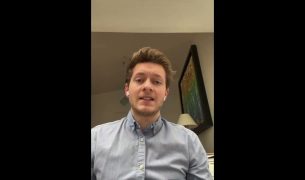 Developing a model for calculating the residual value of construction equipment Year 4 Industrial Innovation Project (PI²4) in the ESILV engineering curriculum, 2023-2024. Solomat Location specializes in the rental, with and without operator, of machinery and… Learn more
Developing a model for calculating the residual value of construction equipment Year 4 Industrial Innovation Project (PI²4) in the ESILV engineering curriculum, 2023-2024. Solomat Location specializes in the rental, with and without operator, of machinery and… Learn more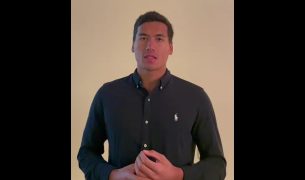 Core distribution, option hedging and systematic strategy Year 4 Industrial Innovation Project (PI²4) in the ESILV engineering curriculum, 2023-2024. The probability distribution of an asset's returns is essential in finance, and more… Learn more
Core distribution, option hedging and systematic strategy Year 4 Industrial Innovation Project (PI²4) in the ESILV engineering curriculum, 2023-2024. The probability distribution of an asset's returns is essential in finance, and more… Learn more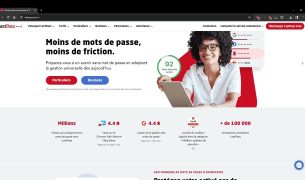 Browser extension for security purposes Year 4 Industrial Innovation Project (PI²4) in the ESILV engineering curriculum, 2023-2024. CyberShen is a cybersecurity start-up working to protect small and medium-sized businesses in… Learn more
Browser extension for security purposes Year 4 Industrial Innovation Project (PI²4) in the ESILV engineering curriculum, 2023-2024. CyberShen is a cybersecurity start-up working to protect small and medium-sized businesses in… Learn more